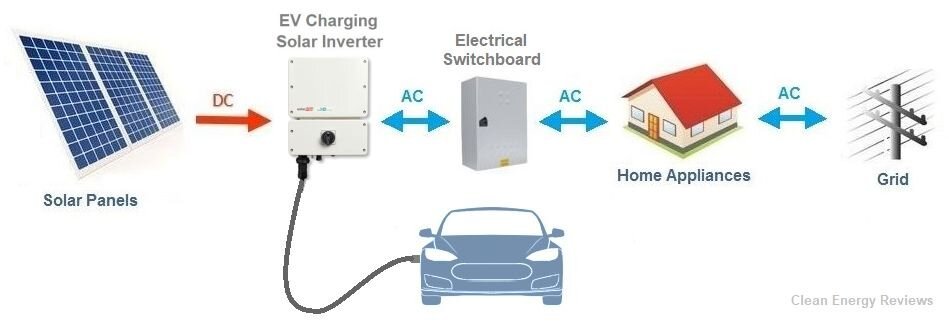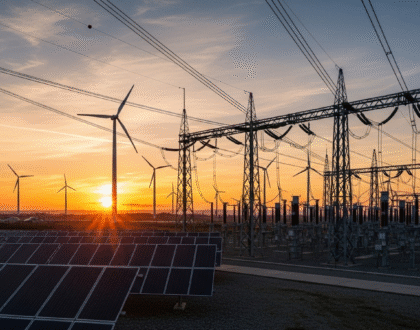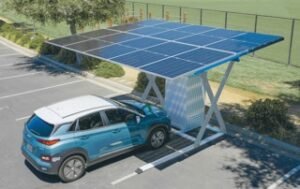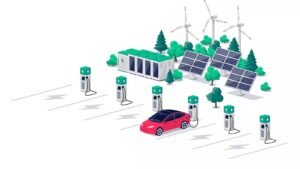Economic and Environmental Gains: Understanding the Dual Benefits of Solar EV Charging Infrastructure

Electric vehicles were invented in the 1830s and are now recognized globally as a key solution to the increase in climate emissions. However, the adoption of e-mobility has been sluggish in low- and middle-income nations, largely due to concerns about the initial costs.
There is a strong economic reason for the broader adoption of electric vehicles in developing and developed countries. This shift has many advantages, including improved public health, less urban traffic congestion, and decreased dependence on expensive imported fossil fuels.
Decreased CO2 Emission
EV charging helps to decrease greenhouse gas emissions as electric vehicles don’t use traditional gasoline and diesel-powered energy sources, which are significant sources of CO2 emissions. Instead, they need electricity to charge. By encouraging apartment residents to switch to electric vehicles and providing easy access to EV charging, communities can help reduce their carbon footprint. Commercial or residential communities can also build Solar EV Charger stations for easy charging point access.
Improving Air Quality
Electric vehicles not only exhibit superior energy efficiency but also offer the distinct advantage of producing zero exhaust emissions. Consequently, the increased adoption of electric cars contributes to reducing air pollution, hence enhancing the local air quality. The decrease in emissions of harmful particles and chemicals results in a healthier environment for all society members, offering significant benefits to individuals with respiratory conditions like asthma and allergies.
Sustainable Traveling
Solar EV charging in residential premises is not only a step towards a cleaner and more environmentally friendly future, but it also promotes sustainable transportation and sustainable attitudes as a whole. By facilitating Solar EV Charging Stations, communities can encourage residents to choose electric vehicles for daily transportation. This has some benefits for society.
Less Noise Pollution
Electric cars are quiet, unlike petrol and diesel vehicles that create noise pollution. This quieter operation enhances the living experience for residency areas and reduces noise pollution in the surrounding area, improving the quality of life for the neighborhood.
Utilizing Renewable Energy
By installing solar panels on the building’s roof or entering into agreements with local renewable energy suppliers, residents can ensure that their electric cars are charged with clean, renewable energy. This helps to further reduce dependence on non-renewable sources and contributes to a more sustainable future.
The Next Phase of Charging Technology: Embracing the Evolution in Solar EV Charging
The continuous advancements in EV charging technology mark a significant juncture in the evolution of electric vehicles. Companies are constantly innovating to elevate the speed and efficiency of charging systems, with a particular focus on Solar EV Charging Stations . These advancements are transforming the user experience, slashing charging times, and promoting environmental sustainability. By optimizing energy consumption and tapping into sustainable energy sources, these advancements are driving the transition toward a cleaner and more efficient future in the world of electric vehicles.
Conclusion
The global shift towards sustainable transportation not only reduces greenhouse gas emissions but also stimulates job creation and economic growth. Visol India promotes such technology as the future of Solar EV Charging Stations heralds an era of faster, more efficient, and increasingly convenient charging methods.
Recommended Posts

How Industrial Solar Power Supports India’s Renewable Energy Goals
17th February 2026
How Much Can Industries Save with Solar Power? A Cost & ROI Analysis
17th February 2026

How Switching to Solar Power Can Reduce Your Electricity Expenses
22nd January 2026



